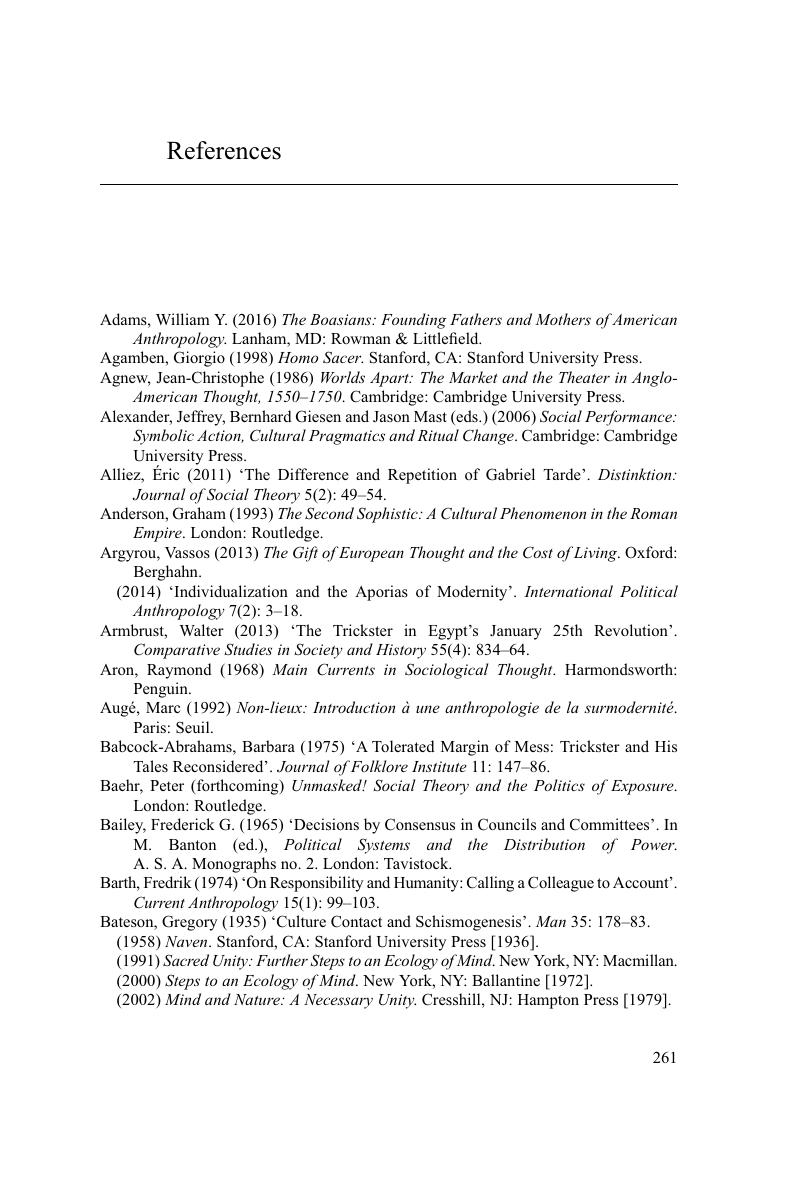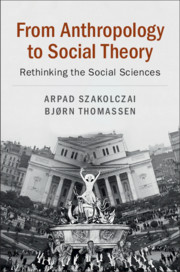References
Published online by Cambridge University Press: 04 January 2019
Summary

- Type
- Chapter
- Information
- From Anthropology to Social TheoryRethinking the Social Sciences, pp. 261 - 278Publisher: Cambridge University PressPrint publication year: 2019

